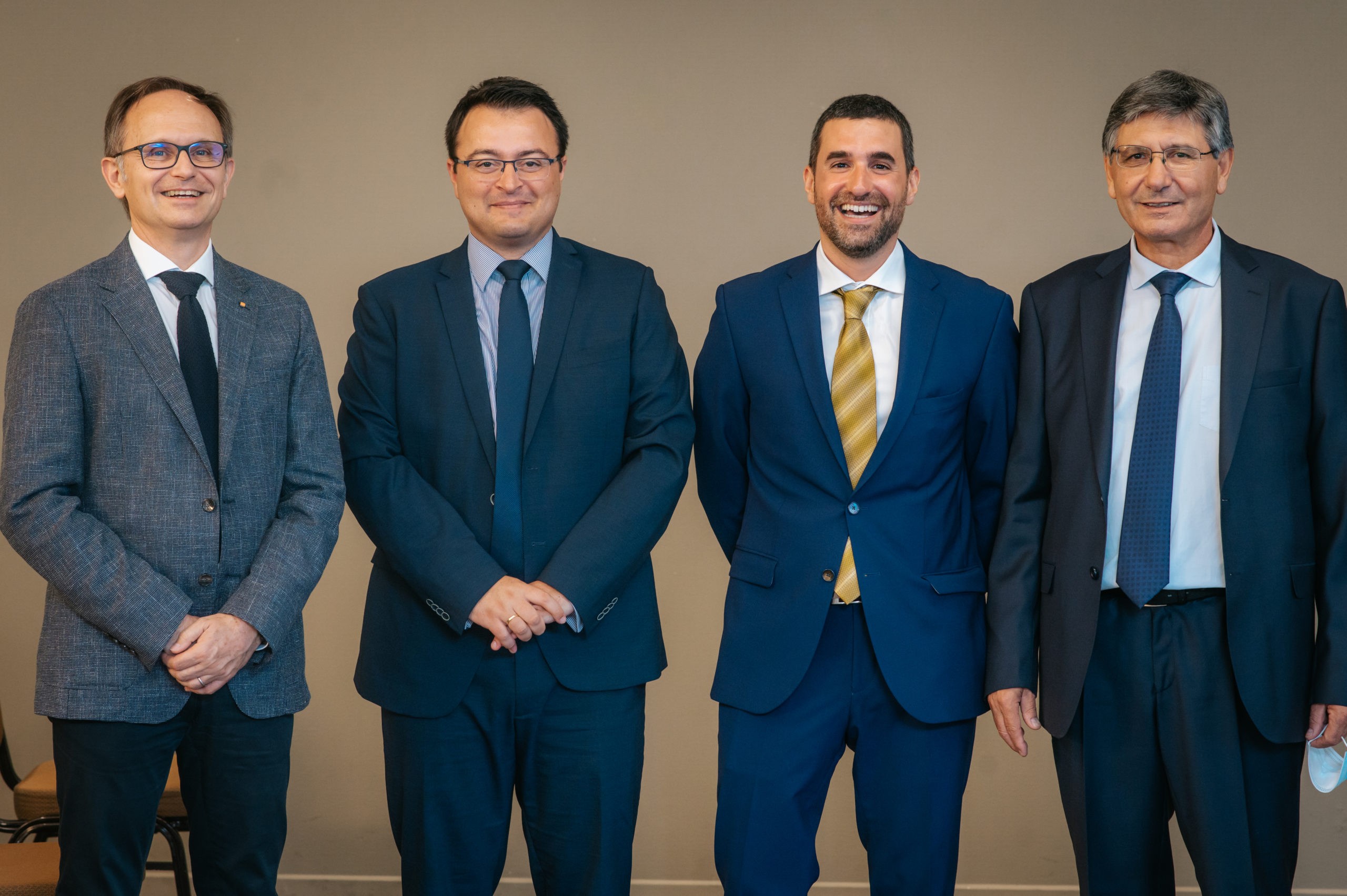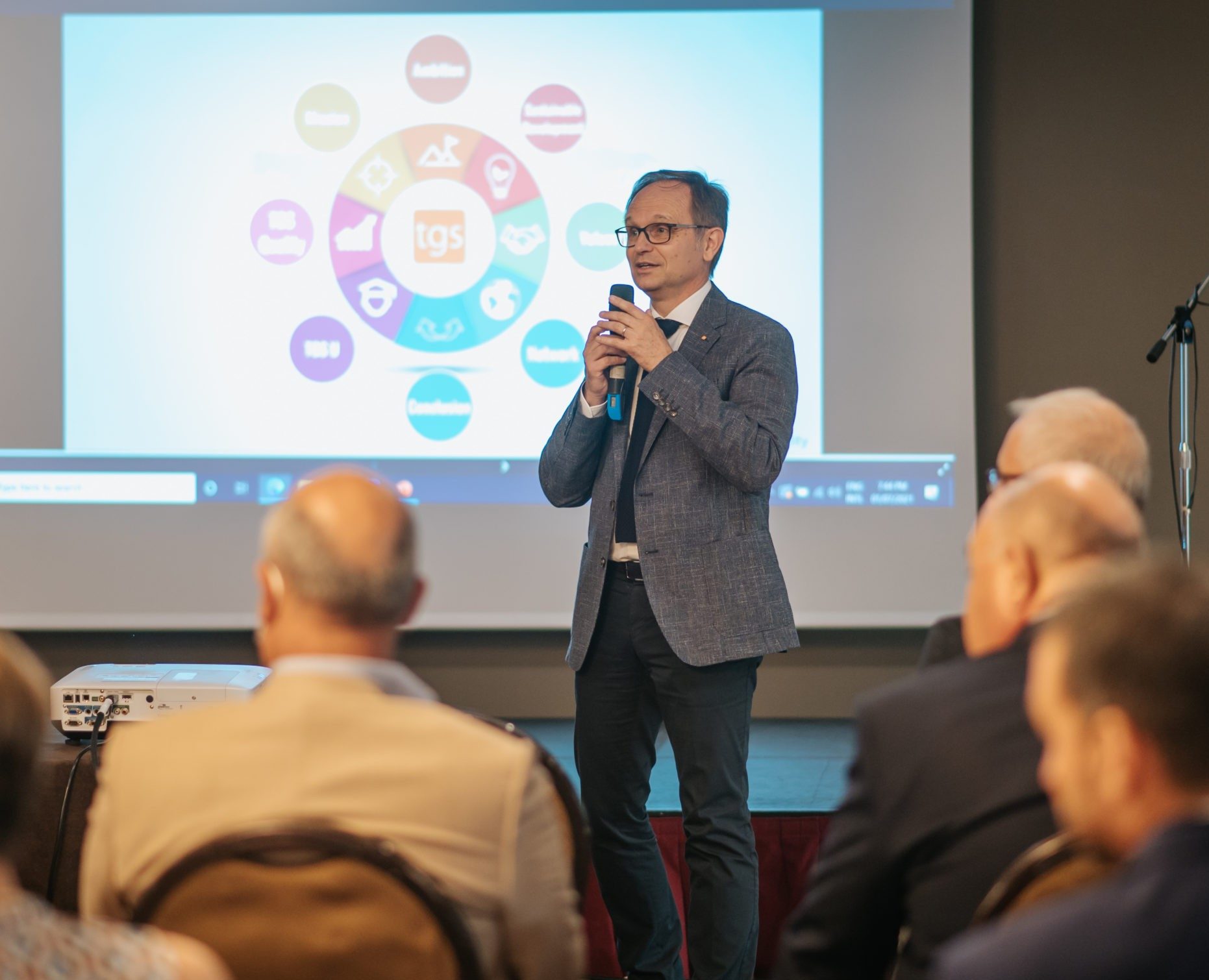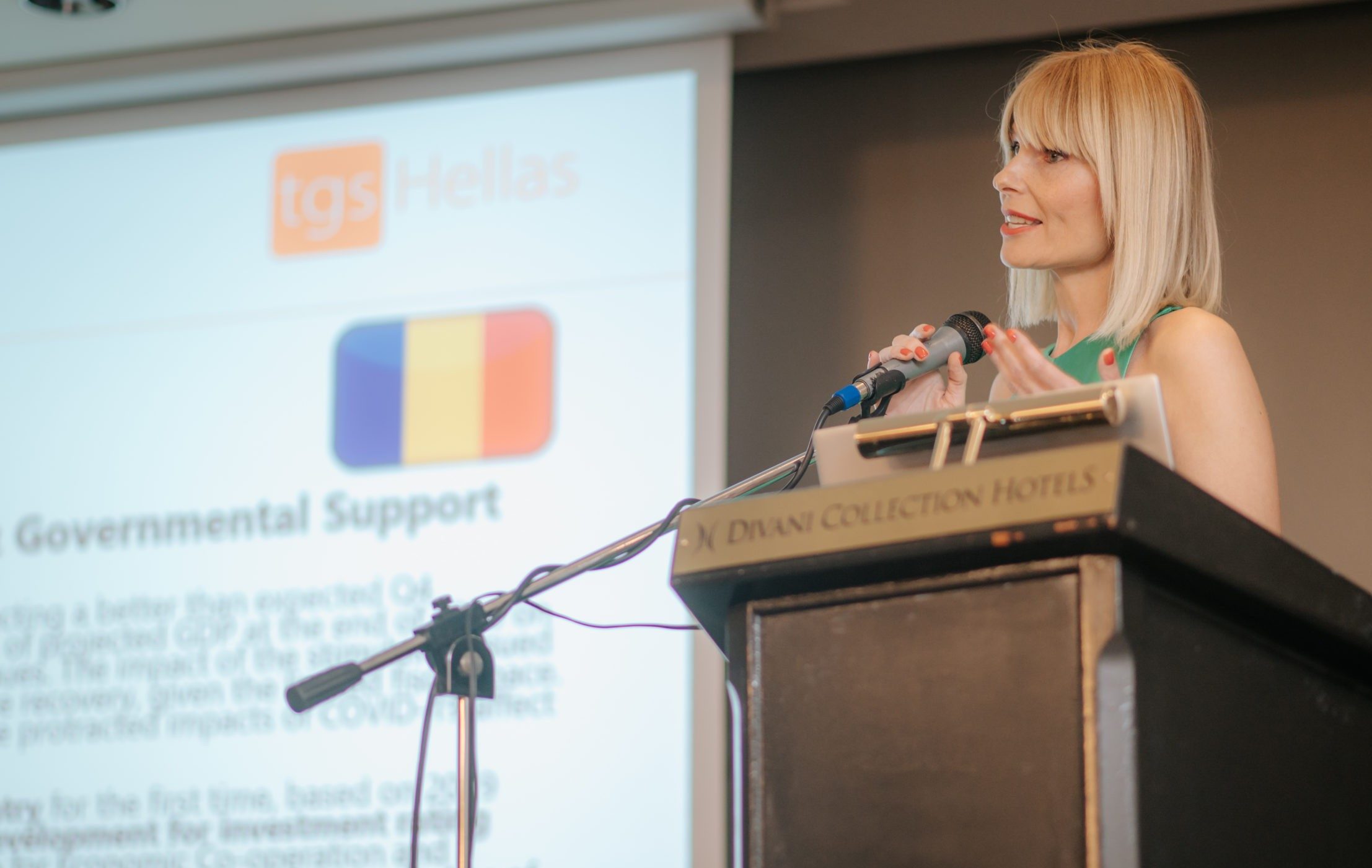12/07/2021
TGS in Greece
Europe
Marc Desjardins, President of TGS global, went to Thessaloniki last week to participate in an event organised by TGS Hellas, an independent member of the TGS network.
“TGS in Southeastern Europe: The Next Day (TGS SEE)” presents and promotes the business potential, ambitions, services, and business opportunities of Southeastern Europe under one leadership and quality assurance system. TGS SEE is the collection of TGS members in South East European countries. Greece, Romania and Bulgaria are already part of this power network within the TGS network and their objective is to become the reference partner for all services in the region. TGS SEE can help your companies to grow and improve their presence in the SEE region.
Each individual country in the TGS SEE group will be able to deliver the same services locally and internationally. TGS is the brand under which experienced professionals collaborate to provide high quality professional services. To cover the needs of the SEE region professional services market, they are looking to expand into Albania, Bosnia & Herzegovina, Croatia, Montenegro, North Macedonia and Serbia.
The TGS SEE group supports clients by offering assurance, advisory and risk services as well as corporate governance, tax, legal, IT integration, digitalization, data analytics and security services.

Marc Desjardins, TGS President and CEO
Gregory Koutras, Partner TGS Hellas, Athens office
Eleftherios Erkekoglou, Senior Associate TGS Hellas, Thessaloniki office
John Spourdoulas, IT Advisory TGS Hellas, Athens office
What is the current economic situation and investment opportunities for the TGS SEE group?
Greece
The Greek economy suffered from Covid-19 and GDP dropped by 8,2% as a result of the decrease in private consumption and tourist activity. The country’s key objective now is to complete the economy’s safe transition to a sustainable growth model based on entrepreneurship, investment, knowledge and social cohesion with social sensitivity and respect for the environment.
According to the Bank of Greece, GDP is expected to grow at a rate of 4.1% in 2021, which is expected to rise to 5.5% in 2022 thanks to the activation of the European Recovery and Resilience Facility which has created prospects for an increase in capital expenditure and accelerated growth.
Greece has active and dynamic population where 40 % of the population are between 25 and 54 years old but Greece suffers from a low birth rate. Greece has investment opportunities in the areas of tourism, energy, information, communications technology, pharma, life sciences, food, agriculture and logistics.

Marc Desjardins, TGS President and CEO
Romania
Romania has suffered a similar fate economically due to the Covid 19 pandemic. The budget deficit jumped to 9.8% of GDP at the end of 2020 due to COVID-19-related spending and lower revenues. The impact of the European Union (EU) stimulus package will play a key role in a Romanian recovery given the limited fiscal space.
The World Bank has classified Romania as a high-income country for the first time, based on 2019 data where there is a per capita income of $12.630 and the Romanian economy is expected to grow by about 4.3% in 2021. The strength of recovery will depend on the success of the COVID-19 vaccine roll-out and the policy response to the health crisis, as well as developments in the EU.
Romanian GDP declined slightly in 2021 but is still higher than it was in 2020 with inflation expected to fall from 2.9 in 2021 to 2.7 in 2022. Moreover, 46% of the population is aged between 25 and 54 years old, which represents a high rate of active people but the country is experiencing significant migration.
Romania is working to improve their public health, education and public administration infrastructures. Key business sectors in Romania are tourism, transportation, renewable energy, high tech and agriculture.

Anamaria Diaconescu, Director at Hellenic Romanian Chamber of Commerce
Bulgaria
Bulgaria was much less affected by Covid than the other TGS SEE group countries and Bulgarian GDP growth reached 3.4% in 2019. The economy was affected by the Covid 19 pandemic but GDP fell by only 4.2% in 2020.
According to the latest World Bank report, Bulgaria’s economy is expected to grow by 2.6% in 2021 and by 3.3% in 2022. Bulgaria is financially stable, has a good credit rating and, at 23.4%, one of the lowest budget deficits in the region.
Bulgaria has a highly educated and skilled workforce with English widely spoken in the country and relatively low wages. There is a low cost of doing business with affordable commercial rents and an electricity cost for industrial users that is only 70% of the European average. Tax incentives include zero tax for manufacturing activities in municipalities with high unemployment.
There is, however, notable political instability and an unreformed judicial system. Bulgaria is also experiencing a demographic crisis with an increasingly ageing population. Key business sectors in Bulgaria are computer science, the automotive sector, agriculture, medical, spa/rural tourism, transport, pharmaceuticals and medical research.

Christodoulos Seferis, Managing partner TGS Hellas and TGS Romania
Marc Desjardins, TGS President and CEO
Gregory Koutras, Partner TGS Hellas, Athens office
Would your firm like to be part of TGS in Southeast Europe?



